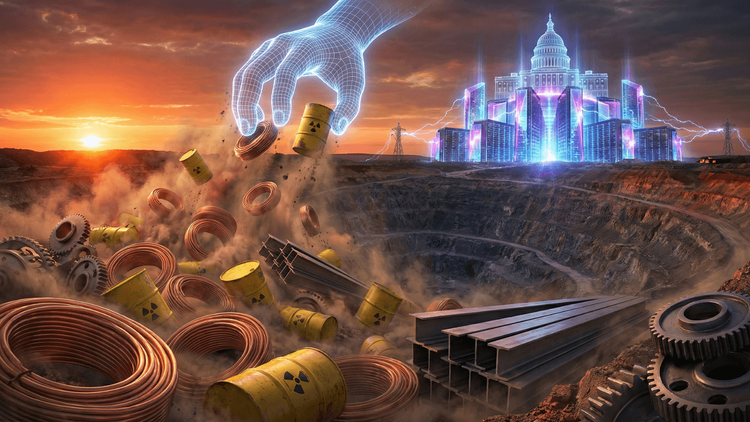No License to Chip: U.S. Pulls Plug on Nvidia’s China Moves
U.S. export ban blindsides Nvidia, triggering a multibillion-dollar write-down, shaking markets, and sparking renewed tech war fears with China.

The U.S.-China tech war just claimed another billion-dollar victim—and this time, it’s the crown jewel of artificial intelligence: Nvidia. In a stunning blow late Tuesday night, Nvidia disclosed it would take a $5.5 billion hit to its first-quarter earnings due to a new, surprise export restriction from the U.S. government. The ban affects the company’s H20 chip—a customized GPU built specifically for China to comply with past U.S. rules. But now, that product is effectively dead in the water. No licenses have been issued for chip exports to China before, and based on Wall Street commentary, none are expected.
Investors reacted fast and brutally. Shares of Nvidia sank over 6% on Wednesday, wiping billions off its market cap. The news not only hit Nvidia but sent shockwaves across the entire semiconductor sector. Advanced Micro Devices dropped more than 6%. Qualcomm and Broadcom fell over 2%. Intel slipped about 3%. The Nasdaq, heavily loaded with tech stocks, shed more than 2% in the wake of the announcement.
At the core of this sudden disruption is a shift in the U.S. government’s stance. Just days ago, analysts and even media outlets had reason to believe the Biden administration had approved Nvidia’s H20 chip after reported discussions involving CEO Jensen Huang and former President Donald Trump at Mar-a-Lago. Yet, in a swift reversal, the Department of Commerce tightened the noose.
Nvidia made it clear in its filing: the company now needs a special license to ship H20 GPUs into China. That license doesn’t exist. The implication? The $5.5 billion charge largely covers already produced or partially completed H20 chips, which may now be entirely unsellable. Jefferies’ analyst Blayne Curtis estimated the real damage could soar to $10 billion in lost sales over the coming quarters. This isn't just about delayed orders or restricted markets—it’s about chips already in boxes with nowhere to go.
The rationale behind the move? National security, according to Washington. Officials fear that chips like the H20 could be used by Chinese firms to build out artificial intelligence infrastructure that rivals or potentially threatens U.S. interests. But not everyone’s buying the argument. Bernstein’s Stacy Rasgon called the decision counterproductive, saying that the H20’s performance was already below that of China’s domestic alternatives. In his view, the ban doesn’t hobble Chinese AI—it just gives Huawei and others a competitive advantage.
This comes at a time when Nvidia is trying to balance geopolitical tightropes while dominating the AI race globally. The chipmaker has bent over backwards since 2022, producing the A800, H800, L20, L2, and now the H20—all engineered to skirt the edges of American export laws. Yet every workaround seems to eventually find itself caught in the crosshairs. And with China accounting for $17 billion, or roughly 13% of Nvidia’s revenue in fiscal 2025, the stakes couldn’t be higher.
Raymond James analyst Ed Mills echoed the broader sense of confusion in his note to investors, noting that the H20 had already received “explicit approval” and that recent indicators suggested the government was walking back earlier restrictions. That belief was torpedoed with Tuesday’s filing. Instead, Nvidia and its peers are now facing a future where Washington’s trade policy is fluid, unpredictable, and potentially more aggressive as the U.S. election cycle heats up.
The new curbs could also ripple beyond Nvidia. AMD, for example, may face similar export hurdles as the Commerce Department applies a broader definition of AI-capable semiconductors. If that plays out, the U.S. tech sector may see deeper disruption—and faster divergence—from Chinese markets. Analysts at Morgan Stanley warned that AMD’s China-facing products are now exposed, and regulatory signals are increasingly difficult to interpret.
Nvidia’s CEO Jensen Huang, who earlier this year addressed a roaring crowd at the GTC conference in San Jose, now finds himself in crisis-management mode. The company had just revealed plans to build $500 billion worth of AI infrastructure in the U.S. over the next four years—part of a push to strengthen domestic supply chains and reduce reliance on offshore manufacturing. But with this latest export chokehold, the question now is: will Nvidia double down on reshoring, or ramp up lobbying efforts to ease the controls?
There may still be a sliver of hope. The Biden administration’s so-called “AI Diffusion” rule, set to take effect on May 15, could theoretically be adjusted or revoked. Nvidia has already called the restrictions “misguided,” and some Republicans have voiced support for softening the stance. A letter from GOP lawmakers to Commerce Secretary Howard Lutnick made public this week asked for exactly that: repeal the AI caps, stop hobbling U.S. tech champions, and avoid handing the AI future to China.
What’s clear is that this isn’t just a business story—it’s a geopolitical chess match. Nvidia, the poster child for American AI dominance, now finds itself a pawn in a broader war over technological supremacy. The clash between innovation and regulation has reached a boiling point. And for Nvidia shareholders, the fallout is immediate, harsh, and uncertain.
As global markets brace for further volatility, Wall Street will be watching every move Nvidia makes—from potential product pivots to political lobbying, and how it navigates the delicate dance between growth and compliance. The company may be down, but in a world increasingly built on artificial intelligence, Nvidia’s role in the story is far from over.
Conclusion
Nvidia’s stunning $5.5 billion charge isn’t just about one chip or one market—it’s the front line of a modern-day trade war where semiconductors are the new oil. The H20 ban showcases how policy whiplash, even from allies, can cause shockwaves across an entire industry. Whether Nvidia can regain its footing depends not only on innovation but diplomacy. For now, investors, competitors, and governments alike are all tuned in—because when Nvidia stumbles, the whole AI world feels the tremor.






